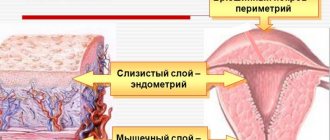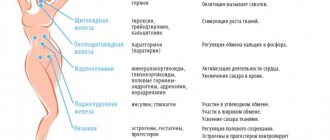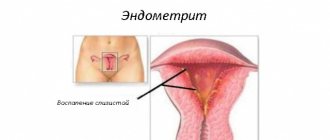Health
It's no secret that a woman's behavior and mood are greatly influenced by her hormonal levels.
Hormones are the reason why a woman gets easily irritated, sometimes begins to behave aggressively for no apparent reason, or sheds a sea of tears while watching a movie that she has already seen ten times.
A man must remember that there are “special” days of the month when more attention, care and love are required from him
. Perhaps you should once again present a bouquet of flowers, buy your favorite chocolate and create a romantic atmosphere for your beloved that will brighten up “these days of the month.”
Romance and a sensitive attitude will do their job: it will be much easier for your beloved to cope with raging hormones.
Perhaps after reading this list of 10 things a man should know about female hormones
, the stronger sex will understand their loved ones more, and life with them will become more harmonious.
The importance of the hormones estrogen and progesterone
1. It's not just estrogens
When it comes to female hormones, we often mention estrogens. And, of course, such increased attention to them is not unreasonable.
Estrogen is the main and most important female sex hormone
, responsible for most of the various functions in a woman’s body, including breast growth and maturation of the genitals during adolescence.
Estrogen also affects the menstrual cycle and a number of other functions not related to childbirth.
Progesterone also plays an important role in the menstrual cycle,
in particular, it helps prepare the uterus for a fertilized embryo.
The placenta of a pregnant woman produces progesterone, which is responsible for the growth of the fetus. The surge and decline in the level of this hormone is affected by childbirth, as well as the beginning of breastfeeding.
PMS in women
3. PMS is serious
Some doctors have equated premenstrual syndrome (PMS) to a full-blown disorder.
According to experts, PMS is a fairly compelling argument that excuses tearfulness, mood swings, moodiness, cravings for unhealthy food, and passivity or aggressiveness of a woman during a certain period of the month.
According to experts, three out of four women
Every month they experience all the hardships of the so-called premenstrual syndrome.
No one knows exactly what causes PMS: is it a consequence of hormone fluctuations, which in turn provoke chemical changes in the brain, or is it something else?
Menstrual cycle and ovulation
4. Menstrual cycle varies
It is known that on average, the menstrual cycle lasts 28 days.
In the middle of the cycle, the ovary releases a mature egg. If the egg is fertilized at this point, it moves into the uterine cavity and eventually becomes an embryo.
If fertilization does not occur, the walls of the egg begin to flake off in the form of blood clots . The release of blood is called a "period".
And, as a rule, it lasts seven days. Relying on such a schedule, a woman can always determine her “period”.
But the number 28 is an average.
Some women have a shorter cycle, while others have a longer one. For some women, the “period” lasts only a couple of days, while for others it lasts almost a week.
Further complicating matters is the fact that both the cycle and the period may change over time. Taking various medications, playing sports, stress or bad habits can also affect changes in the cycle and period.
Many women cannot accurately calculate the specific start and end date of the “period”.
Such vagueness in the cycle and period in women was the reason why birth control pills were invented, which completely suppress ovulation and control the cycle, thanks to the artificial hormones in their composition.
Contraception not only reduces the chances of getting pregnant to zero (if used correctly), but also ensures the regularity of a woman’s cycle.
Very important information!
About our cycle to be friends with ourselves. Day 1 The first day of the cycle is usually considered the day when menstrual bleeding begins. Against the background of a decrease in con hormones (progesterone and estrogen), rejection of the endometrium begins - a thick layer of the uterine mucosa, the “featherbed” prepared by the body in case of a possible pregnancy. The concentration of prostaglandins—pain mediators and stimulants of uterine contractility—increases. It’s good for the body - the uterus contracts, throwing out the old endometrium and squeezing bleeding vessels. But for us there is only one disorder: pain and heaviness in the lower abdomen. Antispasmodics will help relieve discomfort: “No-shpa”, “Belastezin”, “Papaverine”, “Buscopan”. But it is advisable not to take Aspirin, as this can increase blood loss. The most “advanced” follicle begins to develop in the ovaries, bearing the egg. Sometimes there are more than one “advanced” ones, and then after successful fertilization several babies can be born at once. Day 2 I really want to be beautiful, but today hormones are working against us. As a result of low estrogen production, the activity of the sweat and sebaceous glands increases. You have to spend half a day in the shower, spend more time on your face and correct your makeup more often. <Hair changes its chemical structure and becomes less easy to style. Perm done during menstruation lasts less, so do not plan to visit the hairdresser during these days. Sensitivity to pain is still high. To avoid “sharp sensations,” it is better to postpone a visit to the dentist, hair removal and other unpleasant manipulations for 4-5 days. 30-50 g of mulled wine from good red wine will help relieve stress and possible pain in the lower abdomen. However, larger amounts of alcohol these days are contraindicated: it can prolong menstruation and increase blood loss. Day 3 The phrase is especially relevant: “Cleanliness is the key to health!” In the uterus, after rejection of the mucous membrane, a wound surface is formed. And the cervix these days is as open as possible, and therefore is the entrance gate for infection. It is advisable to abstain from sex. However, if “you can’t, but really want to,” then be sure to use barrier contraception. Remember that a condom will reduce the chance of infections and also prevent pregnancy, which is possible even these days. Day 4 “Critical days” are coming to an end. Our mood improves and we feel a surge of strength and energy. However, you should not overestimate yourself. At this time, sports feats, repair work, rearranging furniture and other activities associated with heavy physical exertion are contraindicated. But morning exercises will help reduce the duration of menstruation and the amount of blood loss. Day 5 The healing process in the uterus ends. During normal menstruation, a woman usually loses about 100 ml of blood. Such blood loss stimulates the body's defenses, activates metabolism, and is the most common cause of iron deficiency anemia in women from 13 to 50 years old. Therefore, it would be useful to include iron-containing foods in your diet - beef, liver, seafood, buckwheat, pomegranates, apples, dried apricots. And also foods rich in vitamin C: meat, leafy greens, currants, gooseberries, apples, citrus fruits, rosehip decoction, juices, etc. Day 6 If you want to lose weight, improve your figure or achieve sports victories, start doing it today. In a renewed body after menstruation, metabolism accelerates - which means that excess calories are burned faster, fat is broken down, protein for muscles is more actively synthesized, and the overall tone of the body, strength and endurance increases. Day 7 The “advanced” follicle in the ovaries, which increases in size every day, produces more and more estrogens. At the same time, the level of testosterone begins to increase, which in the female body is responsible for qualities usually attributed to men: high performance, a sharp mind, a broad outlook, excellent memory and the ability to concentrate. Therefore, this day was simply created for study and career growth. Estrogen and testosterone together drive away habitual drowsiness, giving vivacity and freshness of thoughts better than the most expensive coffee. It’s like there’s an extra 25th hour in the day—take advantage of it!
Day 8 It's time to make a beauty plan for the coming week. Every day the concentration of estrogen in the blood, the main hormone of beauty and femininity, increases. This means that the skin, hair, nails and body become more receptive to all kinds of cosmetic procedures and simply glow with health. After depilation carried out these days, the skin remains smooth and soft longer than usual. And the reason for this is not the newest formula of the post-depilation cream, but a change in hormonal levels. Days 9, 10, 11 There are several days left before ovulation. Usually, days from the 9th are considered dangerous in terms of conceiving a child. However, if you are dreaming of having a girl, now is your time! There is a theory according to which sperm with the X chromosome (determining the female sex of the baby) are able to “wait” longer than others for the release of the egg from the ovary in the woman’s genital tract. Therefore, you have about 4-5 days left. And on the day of ovulation and immediately after it, the possibility of conceiving a boy increases. Day 12 By this day, thoughts about work and everyday difficulties become more and more distant, and thoughts about love, passion and tenderness literally absorb your entire consciousness! The main hormones responsible for female sexuality and libido occupy leading positions. A woman's excitability and sensitivity of erogenous zones increases, and even a special smell appears that can attract male attention, like pheromones. Therefore, some experts believe that the use of perfumes these days may even somewhat weaken our attractiveness to the stronger sex. Day 13 The maximum amount of estrogen accumulates in the body. This serves as a signal for the production of another hormone, luteinizing hormone, which very quickly reaches its peak concentration and stops the growth of the follicle. Now it contains a mature egg, ready for ovulation and fertilization. Day 14 Under the influence of estrogens and luteinizing hormone, the wall of the mature follicle bursts and the egg is released into the abdominal cavity. At the same time, a small amount of blood is poured into the abdominal cavity. Some women may even feel tenderness in the lower abdomen on the right or left (depending on which ovary ovulated in). Once in the abdominal cavity, the egg is immediately captured by the fallopian tube and sets off on its way to meet the “masculine principle.” On the day of ovulation, a woman has the highest libido and is able to experience the most vivid sensations from intimacy with her loved one. Sexologists say that if a woman regularly abstains from sex during the days of ovulation (for fear of an unwanted pregnancy) and does not experience orgasm, then her libido can steadily decrease over time. To make it easier for sperm to reach the egg, the cervical mucus (the mucous plug that closes the entrance to the uterus, protecting against infection) is liquefied. Therefore, casual sex on the day of ovulation is fraught not only with unwanted pregnancy, but also with a high risk of contracting an STI. On this day there is a high probability of conceiving twins. If during ovulation a woman’s several eggs are released at once (there is usually a genetic predisposition to this), then with a successful combination of circumstances all of them can be fertilized. Day 15 In the ovary, at the site of the burst follicle, the corpus luteum begins to form. This is a special formation that - regardless of whether fertilization has occurred or not - will diligently prepare the body for pregnancy within 7-8 days. The corpus luteum begins to produce the hormone progesterone, the main hormone of pregnancy. Its goal is to turn an active and carefree girl into an expectant mother who carefully maintains her pregnancy. Day 16 Progesterone begins to prepare the lining of the uterus (endometrium) for egg implantation, and the concentration of this hormone increases every day. During this phase of the cycle, appetite increases and weight gain occurs most quickly. Be especially careful with carbohydrates. As a result of complex hormonal relationships, the body begins to demand more sweets and store them “in reserve” in the form of fat. Day 17 Under the influence of progesterone, smooth muscle tone decreases. As a result, intestinal peristalsis (wave-like movement) slows down. This can lead to bloating and constipation. Therefore, try to enrich your diet with coarse fiber and fermented milk products. Day 18 In case of a possible hunger strike, the body does its best to stock up on nutrients for future use, and as a result, fat metabolism also changes. There is an increase in cholesterol and harmful (atherogenic) fats. And their excess not only spoils the figure, but also creates extra stress on the heart and blood vessels. Therefore, during this phase of the cycle, try to increase the proportion of vegetable fats in your daily diet and avoid gastronomic exploits. In addition, it is useful to eat garlic and red fish, this helps reduce cholesterol. Day 19 Despite the fact that ovulation has already occurred, during the second phase of the cycle the body still maintains a fairly high level of testosterone, which increases our libido. Its production is especially enhanced in the morning. You can take advantage of this by filling the dawn hours with passion and tenderness. Day 20 By this day, the corpus luteum begins to blossom. The concentration of progesterone in the blood reaches a peak value. The egg travels through the fallopian tube and approaches the uterus. At this point, she is practically incapable of fertilization. It is believed that from this day relatively safe days for fertilization begin. Day 21 The concentration of luteinizing hormone decreases and the reverse development of the corpus luteum in the ovary begins. The concentration of estrogen and progesterone gradually decreases. However, progesterone levels and all its effects will be quite pronounced until the start of the next cycle. Day 22 Metabolism slows down, which is typical for the entire second phase of the menstrual cycle. Progesterone acts as an antidepressant: it has a calming effect, relieves tension, anxiety, and relaxes. These days we become “impenetrable” to boss’s reprimands, troubles and other stressful situations. Day 23 Decreasing levels of estrogen and increased progesterone, possible problems with the intestines, abuse of carbohydrates these days - all this is reflected on the face, especially if there is a predisposition to acne. The activity of the sebaceous glands increases, pores expand, and keratinization processes in the skin intensify. Therefore, these days you need to pay more attention to diet and proper facial cleansing. Day 24 Under the influence of progesterone, changes occur in the structure of connective tissue: ligaments become more extensible, hypermobility appears in the joints. There may be nagging pain in the spine and large joints. Women receive the greatest number of injuries, especially those related to sports, on these days. One awkward movement can lead to a sprain or dislocation, so be careful with yoga, gymnastics and other types of physical activity. Day 25 Scientists have proven that on these days a woman develops a special smell, which makes it clear to a man that a forced period of abstinence is ahead. Perhaps this fact is the reason for the synchronization of cycles in several women living together for a long time. Days 26, 27, 28 Often the most difficult days for a woman and her loved ones. As a result of fluctuations in hormone levels, a woman becomes sensitive and vulnerable, at this time she needs sensitive support. The level of prostaglandins in the blood increases, the pain threshold decreases, the mammary glands become engorged and painful, the picture is complemented by headache, constant daytime sleepiness, anxiety, apathy and irritability. Isn't this enough to ruin the mood?! Experts believe that sex and chocolate can be a miracle cure these days. However, with sex things are more complicated than with chocolate. Before menstruation, the level of all hormones that awaken passion in a woman decreases. According to doctors, during the premenstrual days, a woman’s libido tends to zero. But for some representatives of the fair sex, by the end of the cycle, on the contrary, passion and desire awaken, sensitivity and acuity of sensations increase. Psychologists found an explanation. They believe that these days women are not frightened by the thought of a possible pregnancy, which is why sexual fantasies become bolder and feelings become brighter. *** Of course, every woman’s “hormonal clock” runs differently: for some, it’s a little faster, shortening the cycle to 20-21 days, for others it’s slightly slower, down to 30-32 days. The 28-day cycle is only the most common, so it is impossible to create an accurate and universal hormonal calendar. Each woman will have to adapt it to herself. However, the general patterns of hormonal fluctuations and associated changes in the body remain. Without knowing these features, we sometimes begin to struggle with our own hormones: we sit on a strict diet when the body is trying with all its might to stock up for the future, we forget about our face when it needs the most intense care, or we scold ourselves for being too cold with our loved ones at a time when our sensuality is on “forced vacation.” By making some changes to your usual lifestyle, you can make your hormones work with a vengeance, making us more attractive, cheerful, cheerful and desirable! Natalia DOLGOPOLOVA, general practitioner
Female hormones in men
6. Not only women have female hormones.
The hormones estrogen and progesterone are traditionally associated with the weaker sex. But just as women have testosterone (the dominant male hormone), men also have a “female hormone” in their bodies.
just in smaller quantities.
In fact, estrogen is very close in chemical composition to testosterone. In men, estrogen is produced from testosterone by the enzyme aromatase.
This adrenal enzyme helps regulate the male reproductive system and also affects his behavior. The older a man gets, the higher the level of estrogen in the body. Testosterone levels, on the other hand, decrease as a man ages.
Estrogen imbalances in men can cause significant health problems. Sometimes a surge of estrogen in the body is a result of obesity, since this “female” hormone is produced mainly in fat cells.
In men with diabetes, prostate cancer, or heart failure, the level of tarragon was off the charts or, on the contrary, was below the norm.
So maintaining hormonal balance
very important when it comes to men's health. Progesterone in a man's body helps regulate estrogen levels. Therefore, when doctors discover an imbalance of estrogen and testosterone in a man's body, he is prescribed hormonal supplements.
“These days” or irritable man syndrome: “Hey guys, are you having PMS?”
*in the text, the words “man” and “woman” are understood as concepts from the binary gender system.
We are often asked questions: “Are you having those days again?”, “Is it PMS?” or “It’s all hormones, right?” But now we have our own ace up our sleeve, which will allow us to win the game against remarks that demean our intelligence. Men also have periods.
Men's periods?! What are you saying?
When I said that “men have periods too,” I didn’t mean blood loss per se. Men have a hormonal cycle that lasts about a month. Science has proven that hormone levels ebb and flow over the course of days, weeks and months in both men and women. According to research, testosterone levels in men fluctuate depending on the time of year. Psychotherapist Jed Diamond called this phenomenon irritable man syndrome (IMS).
© JA Bilhan
Factors that lead to hormonal fluctuations include, among other things, the level of stress to which the body is exposed, age, quality of sleep, eating disorders, etc. According to sexologist Janet Brito, these characteristics, in turn, can influence a person's psychological well-being.
The symptoms of “these things” in men are similar to the symptoms of premenstrual syndrome (PMS). For example: anger, decreased self-esteem, anxiety, depression, fatigue and mood swings. The reason for all of the above may be testosterone deficiency. Plus, this hormonal cycle is regular enough to be called a man's period. Both sexes go through the same biological process. But if we look at this only through the prism of physiology (the presence of the endometrium, ovaries, eggs and uterus), then opinions will differ. For example, people who have a uterus and ovaries suffer pain in the lower abdomen and blood loss every month, while people with a different structure of the genital organs do not experience this.
Middle-aged people typically experience lower testosterone levels. By analogy with menopause, this condition is also called “andropause”, popularly “male menopause”.
© JA Bilhan
Irritable man syndrome (IMS) is not a recognized medical condition. In 2002, endocrinologist, Peter Celek, from Comenius University published a study that showed that testosterone levels in men and women are based on the lunar cycle. In men, a jump in testosterone occurs on the eighteenth day of a thirty-day cycle. But the scientist’s conclusions were not accepted by the scientific community. Celek believes that if women didn't bleed, they too would be skeptical about their menstrual cycles. Thus, treatment for SRM focuses on mitigation and adaptation—exercise, healthy eating, avoiding alcohol, and finding ways to relieve stress.
Negation
We all have bad days and everything around us irritates us. But constant mood swings are not normal and may be a sign of a possible medical condition, for which you should consult a doctor if necessary.
The main problem with men who seek help or simply bring up the topic of SPM is the denial that their body works in a similar way to a woman’s body. Men have been taught to consider themselves the superior and physically stronger sex. They are told that he “should be” more rational and less susceptible to emotions, from the “men don’t cry” category. Patriarchy is cultural violence. It has created a physiological difference-based toxic masculinity that is harmful to us all. It aims to reinforce strong gender norms. But there are non-binary people, and gender fluidity is already a generally accepted term. Being a man does not mean having a certain set of genitals. We are all human beings with certain biological functions, but these functions should not highlight a certain identity, serve as a basis for discrimination, or establish the superiority of one over another.
© JA Bilhan
Patriarchy contains the idea of aggression. Men are taught to fight “emotional slavery,” thereby preventing them from expressing their emotions at all. But homo sapiens is a species that tends to express feelings. We have evolved to better communicate our sensations, and the development of language and art only proves this. Patriarchy forces people to go against what comes naturally to them. There are opinions that violent actions, for example, massacres, are the result of such influence. Suppressing one's nature leads to mental health problems that culminate in suicide. If we replace toxic masculinity with cultural openness and acceptance, something good can come out of it.
The nineteenth of November 2021 was International Men's Day. Of course, it is commendable that many openly thanked the men in their lives for their constant support. But with this article I want to make a contribution to supporting the men themselves. Congratulate your men, but also don't forget about their mental health. This is not an obligation dictated by your gender stereotype, but just a human instinct.
Sugandha is an M.Phil student from Lady Shri Ram College for Women. Her main areas of interest are feminism, art and aesthetics. She loves historical fiction - when she can't find a minute to read, she definitely dreams about it! You can find her on LinkedIn.
Women's menopause period
7. Menopause is a gradual process
In essence, menopause simply means that a woman is no longer able to bear children.
A post-menopausal woman is considered to be one who has not had periods for 12 consecutive months.
Most of us have heard about the unpleasant symptoms of menopause. Rush of blood to the head, increased sweating at night and rapid heartbeat - this is an incomplete list of unpleasant symptoms.
Women are afraid of this moment in advance, when their body begins to rebuild in a new way. Of course, all changes are associated with hormones or, more precisely, with a decrease in the production of hormones by the ovaries.
You may not realize that menopause is a rather slow and gradual process. Menopause does not immediately turn off a woman's hormonal levels. Sometimes menopause can last for many years
.
“These days I stay away from my beloved”: what men think about menstruation
Channing Tatum
This week, the British charity CARE International UK published the results of a survey of thousands of girls aged 14 to 21 years. It turned out that for almost half of them, periods are an extremely sensitive topic that they are not ready to discuss among themselves, and especially with men. The editor of SPLETNIK.RU brought representatives of the stronger sex to a frank conversation about the “red days of the calendar” and found out what they think about PMS and intimacy during menstruation.
According to statistics, ten percent of men under 30 do not think about periods at all, 15 percent are terrified of menstrual blood, even to the point of aversion to sex. 21 percent of young people shift responsibility for a girl’s bad mood to PMS and this physiological phenomenon in general. 24 percent are indignant, explaining their dissatisfaction with the lack of meaningful sex, especially during vacation or vacation. 30 percent use periods to justify their own infidelity.
As for older men (from 30 to 50 years old), four percent have not yet decided on their opinion about menstruation in women. Nine percent use menstruation to take a break from sex or to refuse marital duties “legally.” 13 percent of men understand and accept female nature and can, without much shame or panic, go to the pharmacy to buy sanitary pads or explain to their growing daughter the peculiarities of the physiology of the female body. 26 percent prefer not to discuss this topic, but menstruation is perceived as an unspoken permission to go to friends, do things or hobbies that the woman does not particularly approve of. 28 percent jokingly or seriously believe that nature awarded women with periods to allow men to realize their polygamous nature.
PMS
D., 40 years old
If a wife uses PMS as an excuse for her bad behavior, then a quarrel cannot be avoided...
L., 22 years old
When I was a small child, my little sister enlightened me. This meant that for one week of the month I better do what she says. During “those” days I stayed away from her and tried not to piss her off. Now I behave the same way in my relationship with my lover.
N., 26 years old
Why discuss this? If this is an absolutely normal process in the body, like everyone else! We're not discussing cough or diarrhea, are we?
I., 30 years old
I recently learned an interesting thing about menstruation: depending on the number of mature cells, different hormonal levels are established and, accordingly, “these” days proceed differently emotionally. Menstruation is like a small pregnancy with its own hormonal cocktail in the blood. A week before her period, my wife turns into a monster =) However, I absolutely don’t bother talking about such topics. While lying in bed, we can discuss this with our spouse. I'm sure it all depends on the person. One of them desperately wants sex on such days, while the other is better not to touch it at all.
S., 32 years old
We don’t particularly discuss the issue of menstruation with our partner. There's nothing special about it. What do you know about menstruation... Open the textbook and read.
I., 23 years old
Menstruation is monthly uterine bleeding. My girlfriend recently tried to tell me everything in detail, but I didn’t listen. It's somehow unpleasant. I don’t want to talk about this at all.
D., 30 years old
My first girlfriend, whom I dated when I was 20, had almost painless periods, and I didn’t notice any mood swings. Therefore, for a long time I believed that all these wild stories about PMS were just an excuse to justify my sometimes inappropriate behavior.
O., 25 years old
I had a misconception about the length of my periods. I thought it was only a day or two. I don’t remember where I read this, but then I found out that each woman has different duration and intensity of discharge. It all depends on hormones.
F., 26 years old
My girlfriend and I don't usually discuss this. If you live with your significant other and have sex regularly, then the cycle is, of course, easy to calculate. It’s just that a few days a month you are left without “dessert.” But there is time to watch the new series. However, if we go on vacation together, we try to choose dates so that there is no menstruation on these days.
Purchasing hygiene products
A., 32 years old
What's the problem? Cashiers understand that this is not for you! They're probably thinking, "This guy has a girlfriend that he loves and cares about."
A., 23 years old
I don't see anything special in this. If my beloved asks, of course, I’ll buy it. It’s even exciting, there are more than 20 types of tampons!
S., 27 years old
A friend recently told me about special cups that many people use instead of tampons and pads. Reusable... Sounds strange...
A., 30 years old
Well, no, I buy condoms, and let the girl worry about purchasing tampons herself.
The importance of hormonal norms
8. Hormone balance
As mentioned above, the balance of hormones in the body is of great importance for both men and women. To maintain health, estrogen and other hormones must be normal in everyone.
If estrogen levels are below normal, a woman's bone density weakens. These women have an increased risk of osteoporosis
, they are more susceptible to bone fractures.
Due to high cholesterol, their likelihood of developing cardiovascular diseases increases dramatically.
However, a decrease in estrogen levels is normal during menopause. Some women experience female hormone imbalance due to the premature failure of the ovaries to produce estrogen when the woman is under forty.
Hormone replacement therapy
(HRT) can help a woman solve this problem.
It is worth noting that HRT has been criticized by many experts in recent years, according to whom such therapy causes a lot of side effects.
On the other hand, excess estrogen can cause some forms of breast cancer in a woman. Women with elevated estrogen levels are prescribed anti-estrogen therapy.











